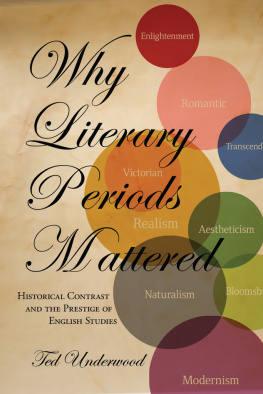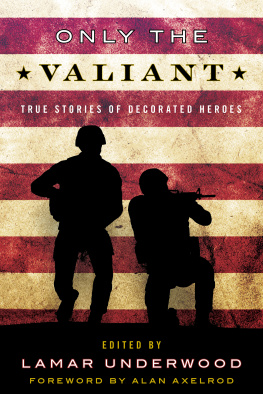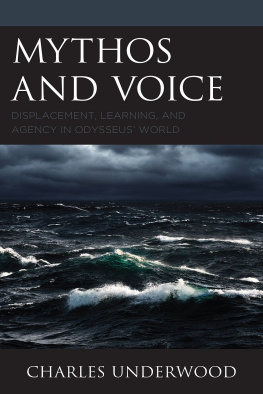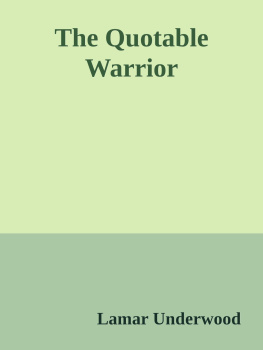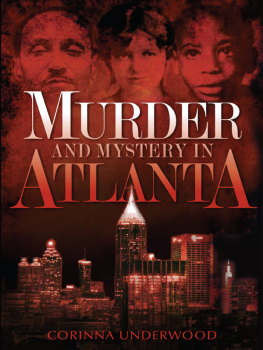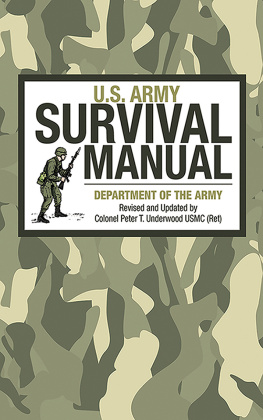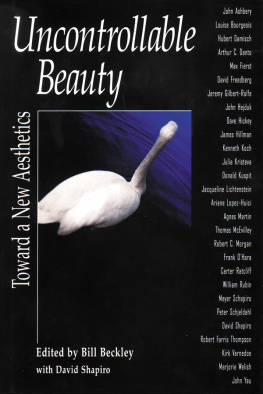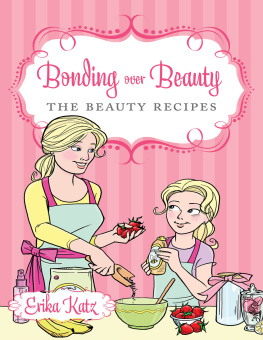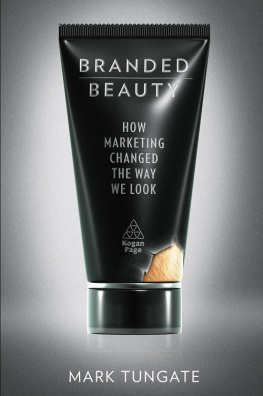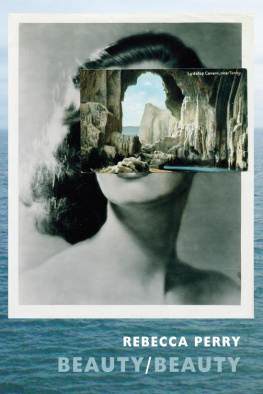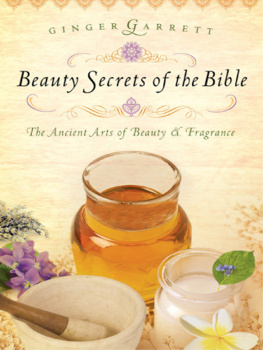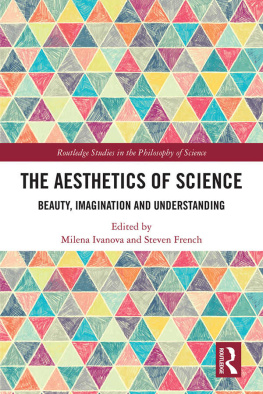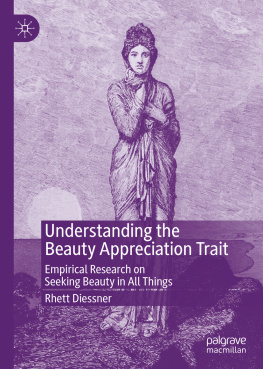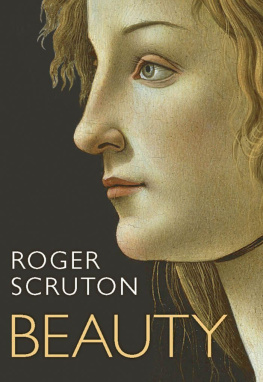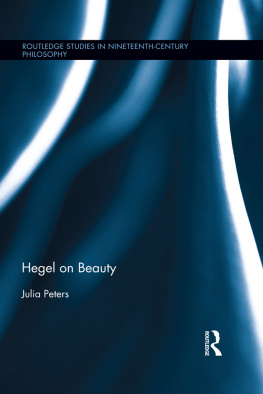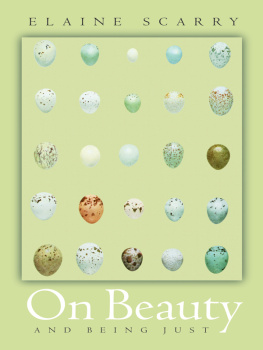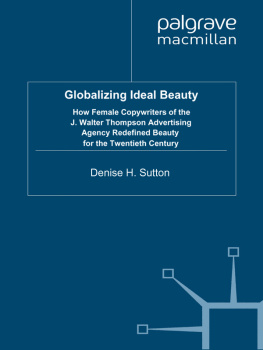THE EXPERIENCE OF BEAUTY
The Experience of Beauty
Seven Essays and a Dialogue
HARRY UNDERWOOD

McGill-Queens University Press 2016
ISBN 978-0-7735-4801-5 (cloth)
ISBN 978-0-7735-9982-6 (ePDF)
ISBN 978-0-7735-9983-3 (ePUB)
Legal deposit third quarter 2016
Bibliothque nationale du Qubec
Printed in Canada on acid-free paper that is 100% ancient forest free (100% post-consumer recycled), processed chlorine free
McGill-Queens University Press acknowledges the support of the Canada Council for the Arts for our publishing program. We also acknowledge the financial support of the Government of Canada through the Canada Book Fund for our publishing activities.
Library and Archives Canada Cataloguing in Publication
Underwood, Harry, author
The experience of beauty : seven essays and a dialogue / Harry Underwood.
Includes bibliographical references and index.
Issued in print and electronic formats.
ISBN 978-0-7735-4801-5 (hardback). ISBN 978-0-7735-9982-6 (ePDF). ISBN 978-0-7735-9983-3 (ePUB)
1. Aesthetics. 2. Art Philosophy. I. Title.
BH39.u53 2016 | 111.85 | C2016-903461-5 |
C2016-903462-3 |
This book was typeset in 10.5/14 Sabon.
Perhaps what is inexpressible (what I find mysterious and am not able to express) is the background against which whatever I could express has its meaning.
Ludwig Wittgenstein
Contents
Preface
Beauty is a secret preoccupation of all of us. It is secret not because it is shameful but because it moves within us at a greater depth than do other things that engage us. The experience is often said to be wordless. Yet, though a feeling that comes over us, beauty seems also to express us; that is another reason for our intimacy with it.
Why is a phenomenon so intrinsic to our experience so little grasped? Why, for that matter, is it so little written about? Beauty, one would think, is a natural subject for the philosophy of art and for the art critics but, in our age, they shy away. They are right to do so: the analytical techniques they employ, the slicing and dicing of concepts, are singularly incapable of capturing the essence of beauty. These approaches lead to a perverse predisposition to conceive of art as more about the intellect than the emotions. To capture beauty, a different talent is required. In every generation, a few books of prose steal onto the market, often memoirs of quite solitary lives, that seem to distill the poetry out of the writers experience. They are always marked by an intense concentration upon sensations and thoughts, which seem to seal off the writer and the place he or she inhabits. I have a cherished pile of such books, and you may too. They can serve as treatises on the nature of beauty. My objective here is different. The writers of whom I spoke address particular experiences. My objective is to understand the poetic itself, as an impulse moving through ordinary experience. This can be achieved only by staying close to the experience itself. So I have attempted, in the time-honoured style of the philosopher, a reflection upon my own experience. (I have also, of course, done some reading.) The philosopher, perhaps laughably, prizes his or her own intuitions as the key to a greater reality. But really intuitions are all anyone has to go on, and the philosopher also knows that, in light of the partiality of their source, it is essential to examine them as diligently as possible.
This book, then, is an attempt to meet beauty on its own terms, as it presents itself to us, and to determine what in general can be said about the experience. Inevitably, this account will be partial and personal and will give the reader I hope something to disagree with. Yet I find that beauty seems to be questing after something, and what could that be if not its own meaning?
I begin with beautys power to transfigure ordinary experience and how that instructs and shapes us. This leads to a discussion of the idea of beauty as a force for philosophical thought, for art, and for an ethical life (in the possession of a personal ideal). I present seven essays plus a dialogue, which to some extent round out earlier thoughts. There are two principal themes overall: the first concerns the meaning that beauty comes to have for a person through his or her experience of it; the second concerns the connection between coming to understand the meaning of beauty and becoming a developed person.
The first essay describes how beauty enters into our perceptions, memories, and judgments, and, as a puzzle, becomes an occasion for reflection. The encounter with beauty is felt to be meaningful, but also a mystery. In the contemplation of this mystery, a person seeks the inner meaning of his or her experience. The love such contemplation inspires is at the centre of the experience of beauty. Coming to understand this will assist in revealing to oneself what one values and therefore in enhancing knowledge. The essay traces the development of the appreciation of beauty from the child to the adult. It considers to what extent the sense of beauty is personal and how it may be shared (as well as judged). Another and I can possess a common appreciation of beauty because, whatever its beginnings in any individual consciousness, the sense of beauty is always seeking out new forms of beauty to understand and appreciate.
In the final essay, I return to our lives and their meaning, and argue that the ideal is the inspiration we find within them. If the first and final essays express my own vision, they bridge encounters with others philosophers, artists, writers, and critics. I seek from these thinkers a critical understanding of their ideas as they bear upon my themes. Here we encounter Plato, Nietzsche, Czanne and his interpreters, Iris Murdoch, and Proust.
Plato and Nietzsche tell us about the nature of beauty in human experience and give us a sense of what matters in our experience and where it ought to lead. They understand that, for the budding philosopher, the desire for experience is also the desire to know its meaning. They write for that idealistic spirit. One might say that Platos Symposium is a vision of life for the aspiring person in the age of classical antiquity and all ages that look to it for inspiration and that Nietzsches The Gay Science fulfills that same role for the modern age. They share also the conviction that the quest for meaning is, at heart, a quest to know what is valuable noble and fine in human life and to embody it. Both contend that it is right to aspire to be a higher form of person.
Both these philosophers, poets of experience as they are, convey the thought that beauty has a larger meaning than the pleasure it gives or other embellishment it may lend to ordinary life. For each, the beautiful, as an object of desire, mediates the desire for meaning in ones life. Both Plato and Nietzsche point to the fact that we desire the experience of beauty. Both believe that the experience points us to matters of surpassing value. For both, therefore, beauty has a philosophical function, which is to provide an ethos for the transformation of the self. For Plato, the operative desire is for knowledge of the truth and takes the guise of an attraction to beauty (as the apprehension of inherent meaning). He believed that beauty serves as a marker of the good which is in certain things and that our love of beauty leads us, in stages, as our understanding of its meaning develops, to an experience of the good itself and therefore to wisdom. For Nietzsche, the operative desire is to discover ones own truth and takes the guise of the creation of beauty (as the propagation of fresh meaning). He believed that a truthful understanding appreciates that the world has only such meaning as we confer upon it, so that each of us is like the artist who transfigures the world in accordance with his or her vision.
Next page

